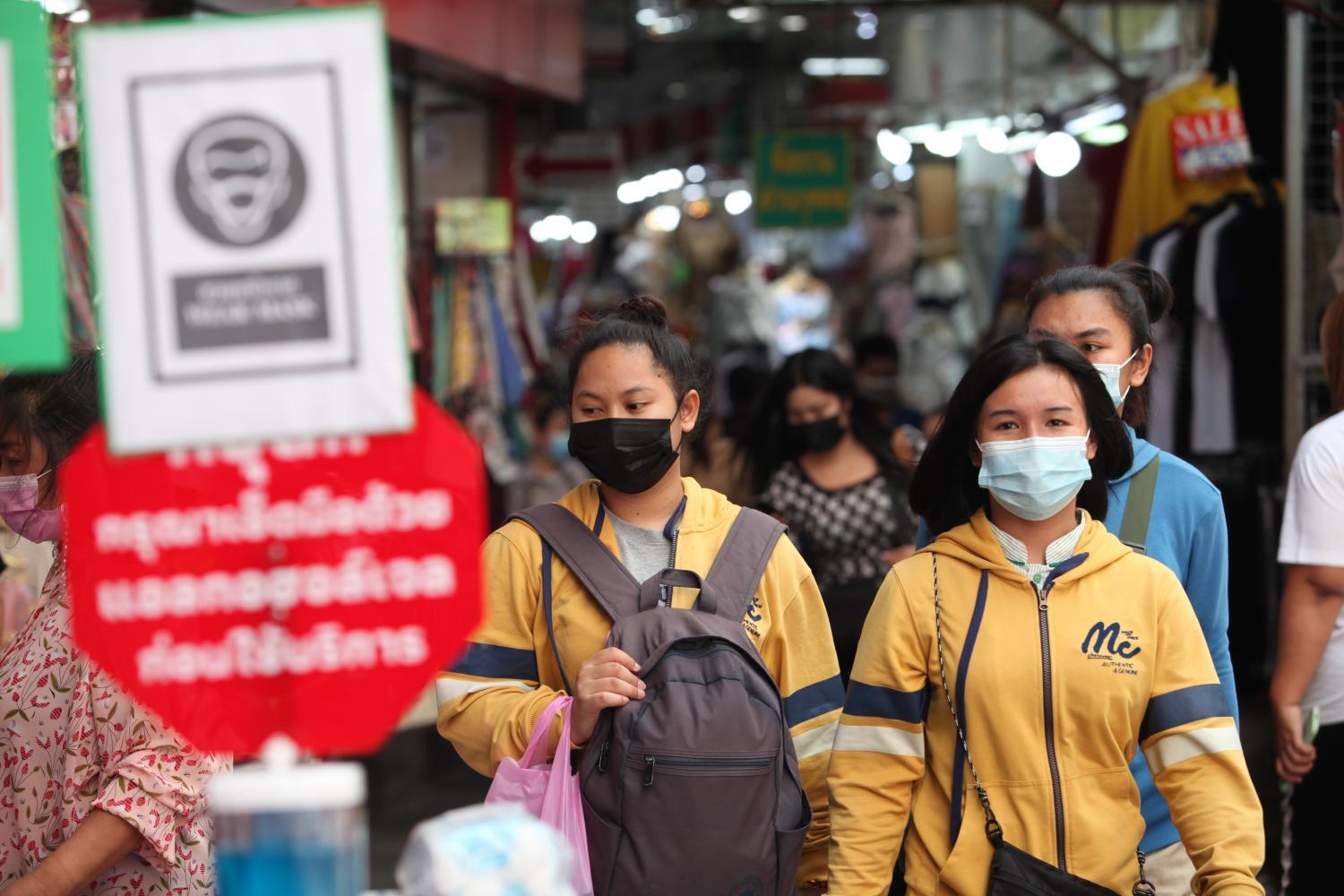
Thailand's GDP growth is forecast at 2.5% this year, assuming the government maintains stringent measures to contain new Covid-19 infections until February, says Krungthai Compass.
The research house under Krungthai Bank estimates the domestic economic growth outlook under two scenarios based on the coronavirus outbreak impact.
The government's stringent measures to contain the contagion, especially tight control in 28 red zone provinces, would largely affect domestic demand and local tourism, said chief economist Phacharaphot Nuntramas.
For the first scenario, Krungthai Compass predicts the government will maintain existing measures to contain the virus outbreak from January to February. This is projected to reduce local tourists to around 110 million, with losses in consumer spending estimated at 167 billion baht.
The government's latest relief measures, which received cabinet approval on Tuesday, should help shore up full-year economic growth momentum to 2.5% in 2021, said Mr Phacharaphot.
If the latest aid package is not implemented, the country's GDP growth this year would plunge to 1.5%, he said.
Two monthly payments of 3,500 baht are among a raft of measures designed to ease people's economic burden, the others being reduced electricity and water bills and soft loans for businesses.
The second scenario sees the government's stringent measures extended to March, with local tourists dipping to 101 million and losses in consumer spending estimated at 239 billion baht.
Even with the government relief measures, Thai GDP would only grow by 2% in this scenario. Without the aid package, growth would expand by 1%.
The government's "stringency index" to contain the outbreak is at 64, lower than 73 registered during the first wave.
The government allowed no interprovincial travel in 14 provinces from April to May when the first wave of the outbreak occurred last year, in addition to closing hotels and a nationwide curfew.
Mr Phacharaphot said domestic tourism is expected to take at least three months to recover, a similar duration following the end of the first wave.
As domestic tourism is expected to gradually improve in the second half, this could cause unemployment to ease, he said.